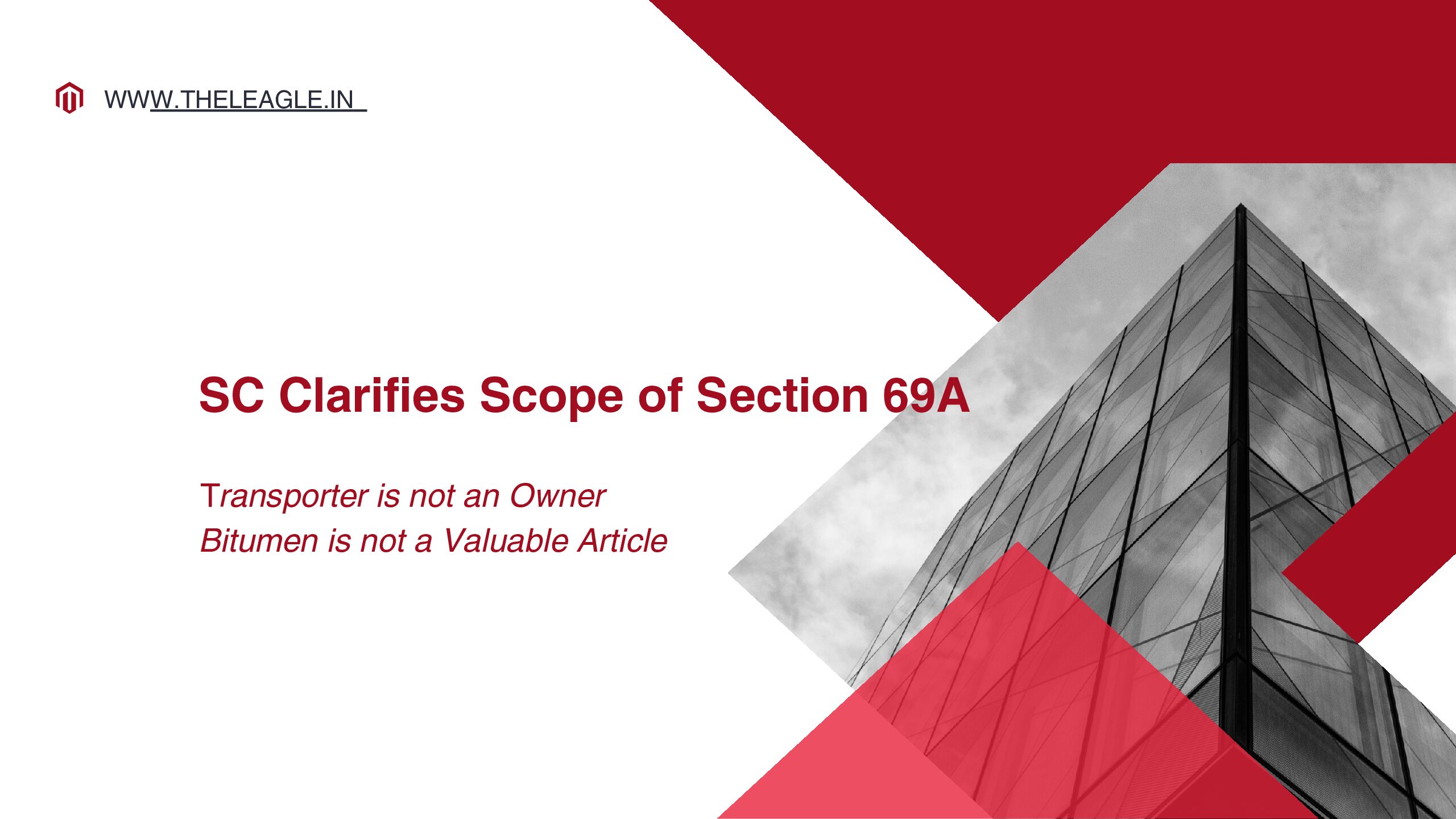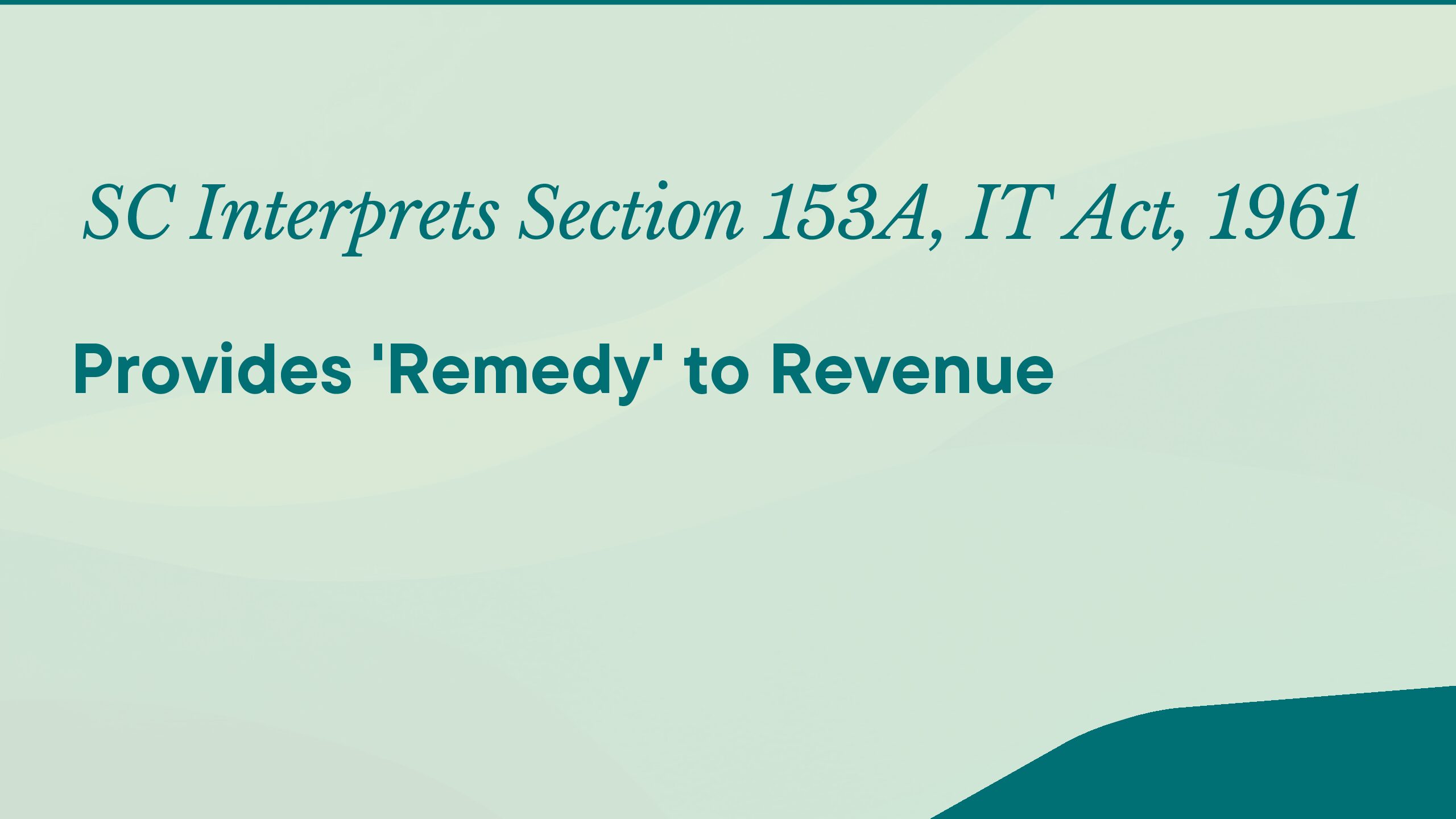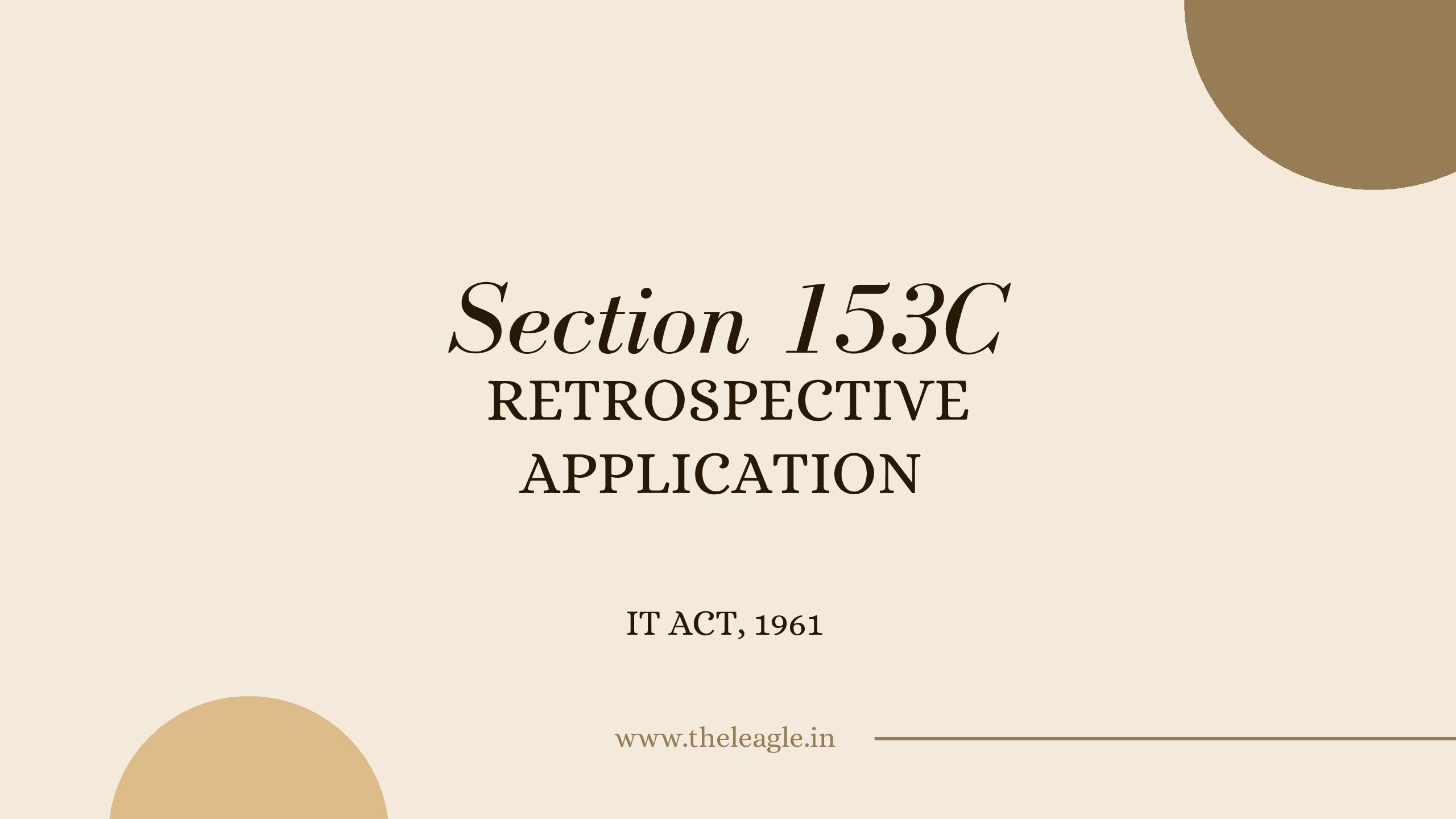On 16 May 2023, a Division Bench of the Supreme Court in M/s DN Singh case[1] delivered a well-reasoned judgment clarifying the scope of Section 69A, IT Act, 1961. The case required the Supreme Court to determine if a person in unlawful possession of bitumen can be equated to an owner and obligated to pay tax for its monetary value under Section 69A. The judgment is elegantly structured and helps us understand the intent and meaning of Section 69A.
Introduction
The brief facts are as follows: assessee was a carriage contractor for bitumen which was loaded from oil companies to be delivered to various divisions of the Road Construction Department of the Government of Bihar. A scam was reported in the media that transporters were not delivering the requisite quantity of bitumen to the Road Construction Department and were misappropriating it after loading from oil companies. Taking note of the scam, Assessing Officer of the assessee took note of the difference in quantity between the bitumen lifted by the assessee and delivered by it and added the value of missing bitumen to the assessee’s income under Section 69A, IT Act, 1961.
There were two assessment years in question: in the assessment year 1995-96, an addition was made in a sum of Rs.2,01,14,659 towards short delivery of bitumen while in the assessment year 1996-97 there was an addition in a sum of Rs.1,04,71,720.
The assessee resisted addition of the amounts on two counts, i.e., bitumen was not a valuable article which was a pre-condition for invoking Section 69A and that the assessee was only a carrier but not owner of the bitumen in question and that Section 69A can only be invoked against owners of the valuable articles. Section 69A, IT Act, 1961 states as follows:
Where in any financial year the assessee is found to be the owner of any money, bullion, jewellery or other valuable article and such money, bullion, jewellery or valuable article is not recorded in the books of account, if any, maintained by him for any source of income, and the assessee offers no explanation about the nature and source of acquisition of the money, bullion, jewellery or other valuable article, or the explanation offered by him is not, in the opinion of the 4 Assessing] Officer, satisfactory, the money and the value of the bullion, jewellery or other valuable article may be deemed to be the income of the assessee for such financial year. (emphasis added)
In this post, I will focus on the Supreme Court’s approach towards interpretation of the two terms – owner and other valuable article – used in Section 69A to examine how it understood the scope and intent of the above-cited provision.
Supreme Court Clarifies the Scope and Intent of Section 69A
The first question was whether the transporter would qualify as an owner of goods which the Supreme Court answered in the negative. The Supreme Court referred to the law relating to bailment and noted that entrustment of goods to the transporter would amount to bailment. The bailee/transporter is necessarily entrusted with the possession of goods for the purpose of delivery as per the directions and wishes of the consignee. Consequently, the Supreme Court held that:
During the subsistence of the contract of carriage of goods, the bailee would not become the owner of the goods. In the case of an entrustment to the carrier otherwise than under a contract of sale of goods also, the possession of the carrier would not convert it into the owner of the goods. (para 39)
The Supreme Court cited a series of cases which examined the definition of owner in the context of income from house property to emphasise two elements: first, that the definition of ownership needs to be interpreted as per the context e.g., in the case of taxation of an owner from income from house property courts have held that the emphasis was on receipt of income. And an owner must be someone who exercises the right of an owner not on behalf of the owner but in his own right. Second, the Supreme Court emphasised the owner possesses a bundle of rights with respect to a property, e.g., power of possession, right to alienate, right of bequeath and right of enjoyment. (paras 57-58) Applying the above understanding and elements of ownership to the case, the Supreme Court observed that the transporter cannot be considered as owner of bitumen. The Supreme Court reasoned that a transporter by short delivering the bitumen breached the terms of contract and committed an act that was punishable under penal laws. Accordingly:
Recognising any right with the carrier in law would involve negation of the right of the actual owner which if the property in the goods under the contract has passed on to the consignee is the consignee and if not the consignor. This Court has already found that the appellant is bereft of any of the rights or powers associated with ownership of property. The only aspect was the alleged possession of the goods which is clearly wrongful when it continued with the appellant contrary to the terms of the contract and the law. (para 61)
The Supreme Court found that the assessee was not in possession of bitumen in his own right, did not possess the power of alienation, could not claim any right over bitumen as an owner and the title of assessee was only a shade better than that of the thief. And thereby the Supreme Court refused to accept that the assessee was the owner of bitumen.
Second question that the Supreme Court had to address was if bitumen constituted a valuable article under Section 69A. It referred to the principle of ejusdem generis and Noscitur a Sociis, and observed that to apply the aforestated principle to interpret a provision there must exist a genus which must not be exhausted by the categories enumerated in the catalogue. The Supreme Court underscored the scope of ‘other valuable article’ by using certain examples. It referred to the fact that watches, coconuts, cameras can or cannot constitute a valuable article depending on the facts of the case, but placed primary emphasis on the price of the goods in question. According to the Supreme Court, the intent was to ascertain if the goods were worth a great deal of money or a great price. Thereby, citing the price of bitumen as Rs 5/kg, it concluded that:
But if to treat it as ‘valuable article’, it requires ownership in large quantity, in the sense that by multiplying the value in large quantity, a ‘good price’ or ‘great deal of money’ is arrived at then it would not be valuable article. Thus, this Court would conclude that ‘bitumen’ as such cannot be treated as a ‘valuable article’. (para 79)
The Supreme Court adopted the right approach in analysing the scope and intent of Section 69A. It examined in detail the position of a transporter as a bailee, the rights of a bailee vis-à-vis owner and how the former cannot be equated to an owner in the impugned case. More importantly, the Supreme Court never lost sight of the intent of Section 69A when interpreting the terms owner and other valuable article, ensuring that its interpretation of both terms was in the proper context and furthered the objective that the provision seeks to achieve.
Notes on Concurring Opinion
In his concurring opinion, Justice Hrishikesh Roy examined the term other valuable article in detail and made three important observations:
First, that he observed that if one focuses on the words money, bullion and jewellery that precede other valuable article, it is justified to include only high value goods. And that if sundry articles of nominal value are included or if one emphasises on total high value of goods without looking at their low per unit price, it would defy the logic of legislature. (para 10)
Second, he stated that the provision was unambiguous and needs to be interpreted strictly – a well-established dictum in tax law interpretation. Thus, other valuable article cannot be interpreted to mean ‘any article of value’ but means an item ‘worth great deal of money’. He reasoned that other valuable article has to be a high-priced article that was purchased to avoid income tax liability and not every article of any value. (para 15)
Third, he correctly observed that high value and less bulky items that aided assesses in evading their income tax liabilities were intended to be brought within the scope of Section 69A and were the reason for 1964 Amendment to introduction of the impugned provision. (para 17)
Justice Roy, in his concurring opinion, was able to successfully highlight the intent, scope and meaning of Section 69A. The concurring opinion is worth reading for its precision and its adds considerable value to the case and helps us understand the history, scope and meaning of Section 69A clearly.
Conclusion
The Supreme Court through its judgment has articulated the scope of Section 69A sufficiently clearly. Equally, the judgment also adequately refers to the intent of the provision, i.e., to bring within the income tax net assets that an assessee may purchase or otherwise own and hides from the income tax authorities. Any article can be of value, the question was whether the article in question was worth enough money to enable a person to escape income tax liability. And more appropriately, the Supreme Court observed that it is not important to ascertain the total value of the goods, but need is to look at per unit value of goods else the objective of Section 69A would not be served.
[1] M/s D.N. Singh v Commissioner of Income Tax, Central, Patna & Anr 2023 LiveLaw (SC) 451.


